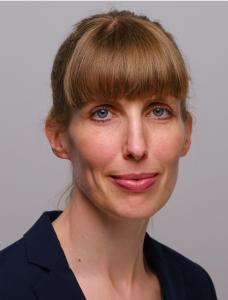The situation of scientists in early career phases has long been the subject of controversy.
has long been the subject of controversial debate. There are no simple solutions to the obvious problems do not exist. The intended amendment of the Act on Temporary Scientific Contracts can only improve the framework conditions selectively; more comprehensive reforms are needed in the science system. Against this background, it is necessary to involve all relevant actors in the discussion.
Better framework conditions not only benefit scientists, but also strengthen the competitiveness of universities. Universities should pursue a responsible human resources policy that takes into account, on the one hand, their interest in quality- and performance-oriented academic competition and, on the other hand, the need of young scientists for career paths that are easier to plan.
Early-stage scientific careers will always be associated with uncertainties. Young scientists should therefore be prepared to take a certain amount of risk and consider possible alternative career paths outside academia.
The Act on Temporary Scientific Contracts, which regulates the necessary fixed-term contracts in science, must not be made too rigid. A further shortening of the maximum duration of fixed-term contracts would have significant disadvantages.
Tenure-track positions are often discussed as a good way to improve the predictability of scientific careers. However, they are not a panacea. Their disadvantages must not be lost sight of.
The questions were asked by Dr Norbert Arnold, expert on science, technology and ethics in the Analysis and Consulting Department at the Konrad-Adenauer-Stiftung.
Experteninterview mit Professor Timo de Wolff zu den Perspektiven von Postdocs
In einem kurzen Interview erläutert Prof. Timo des Wolff, Sprecher der Jungen Akademie (@Junge_Akademie), konkrete Maßnahmen, die zu besseren Perspektiven für Wissenschaftlerinnen und Wissenschaftler in frühen Karrierephasen führen könnten.
YouTube
Experteninterview mit Thomas Jarzombek MdB zum wissenschaftlichen Nachwuchs
In einem kurzen Interview skizziert Thomas Jarzombek MdB, Sprecher der CDU/CSU-Bundestagsfraktion für Bildung und Forschung, die Grundbedingungen für gutes wissenschaftliches Arbeiten und für eine gute Motivation von Forschenden.
YouTube
Topics
About this series
The series informs in a concentrated form about important positions of the Konrad-Adenauer-Stiftung on current topics. The individual issues present key findings and recommendations, offer brief analyses, explain the Foundation's further plans and name KAS contact persons.
Daniela Danz ist Literaturpreisträgerin der Konrad-Adenauer-Stiftung 2026
From research to business: Innovation transfer in Germany
Securing academic freedom for the long term
Digital and technology expert Lars Zimmermann accompanied the KAS for a year
No Fear of Numbers: Why Math Belongs in Early Childhood Education



